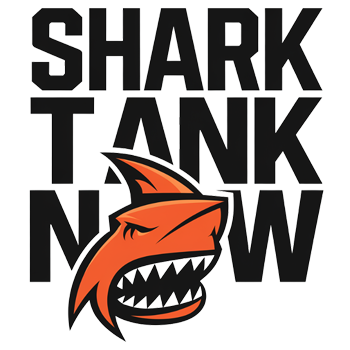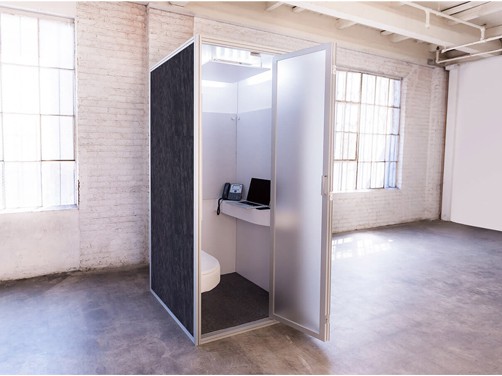Have you ever worked in an open office and struggled to find a quiet place to take a phone call or focus on an important task? If so, you’re not alone. This exact frustration led brothers Nick and Anthony Pucci to create Cubicall, a modular privacy booth designed for open office spaces. Their innovative solution not only addressed a growing workplace need but also earned them a spot on Season 10 of Shark Tank. What followed was a rollercoaster journey of growth, challenges, and adaptation.
Let’s dive into the story of Cubicall—how it began, what happened during their Shark Tank pitch, and where they stand today.
The Birth of Cubicall
Cubicall was born out of necessity in 2017. Nick and Anthony Pucci, who were running a marketing agency at the time, found themselves constantly distracted in their open office environment. Whether it was overheard conversations or the lack of privacy for phone calls, the brothers knew they needed a solution.
Their initial idea was simple: find an old phone booth and repurpose it for their office. However, they quickly realized that existing options were either too expensive or aesthetically unappealing. So, they decided to build their own. What started as a DIY project soon caught the attention of clients and colleagues who wanted similar booths for their own offices.
By the end of their first weekend online, they had sold two booths. It became clear that this wasn’t just a personal solution—it was a business opportunity.
The Shark Tank Pitch
Cubicall’s big break came when the Pucci brothers appeared on Shark Tank in Season 10, Episode 22, which aired in 2019. Their pitch was straightforward yet impactful: they sought $350,000 for 10% equity in their company, valuing Cubicall at $3.5 million.
What They Showed the Sharks
Nick and Anthony showcased two sizes of their sleek, sound-insulated privacy booths. These booths were designed to fit seamlessly into modern office spaces and offered features like USB outlets, LED lighting, and ventilation systems. The customizable designs allowed businesses to match the booths with their branding or office aesthetics.
The Sharks were intrigued but cautious. While the product clearly addressed a growing need in open offices—where 70% of U.S. workplaces operate—the high manufacturing costs raised concerns. For instance:
- A small booth retailed for $6,495 but cost $4,200 to produce.
- A larger booth sold for $12,000 with production costs of $7,200.
These thin margins made some Sharks hesitant to invest.
Memorable Moments
One standout moment from the episode was when the brothers retreated into one of their own booths to deliberate over offers—a clever move that showcased their product’s functionality while adding humor to the pitch.
The Deal
After some back-and-forth negotiations:
- Kevin O’Leary offered $350,000 for 10% equity but included a perpetual royalty of $50 per unit sold.
- Barbara Corcoran countered with $350,000 for 25% equity without royalties.
Ultimately, Nick and Anthony accepted Barbara’s offer after realizing her expertise in commercial real estate and furniture could help them scale effectively.
Post-Shark Tank: Growth and Challenges
While securing a deal on Shark Tank often propels businesses into rapid growth, Cubicall’s journey wasn’t without its hurdles.
Initial Struggles
Despite the exposure from Shark Tank, Cubicall faced challenges with scaling production and improving profit margins. Additionally:
- The deal with Barbara Corcoran ultimately fell through during due diligence.
- The COVID-19 pandemic hit shortly after their appearance on the show, causing many offices to close temporarily or shift to remote work.
The Pandemic Pivot
When COVID-19 disrupted traditional office setups in 2020, Cubicall adapted by expanding its product line to include medical isolation booths. These new offerings featured air filtration systems and UV disinfection capabilities, catering to healthcare facilities and essential businesses.
This pivot not only kept Cubicall afloat during uncertain times but also opened up new markets beyond traditional office spaces.
Cubicall Today
Fast forward to 2025—Cubicall has come a long way since its Shark Tank debut. Here’s an overview of where the company stands today:
| Category | Details |
|---|---|
| Product Name | Cubicall |
| Founders | Nick Pucci and Anthony Pucci |
| Season & Episode | Season 10, Episode 22 |
| Ask (Investment & Equity) | $350,000 for 10% equity |
| Final Deal | $350,000 for 25% equity (deal fell through post-show) |
| Shark(s) Involved | Barbara Corcoran |
| Memorable Episode Moments | Founders deliberated inside their own booth during negotiations |
| Current Net Worth | Estimated at $5 million annual revenue (as of 2022) |
| Current Business Status | Active |
| Revenue Since Shark Tank | Grew from $500K annually pre-show to $5M annually by 2022 |
| Social Media Presence | Active LinkedIn profile; limited other platforms |
| Key Achievements | Pivoted to medical isolation booths during COVID-19; clients include SAP, Goldman Sachs, Cisco |
Client Base
Cubicall now serves high-profile clients like SAP, Goldman Sachs, Cisco, Bloomberg, and even the Department of Homeland Security. Their ability to customize booths has made them popular among Fortune 100 companies seeking tailored solutions.
Market Reach
The company operates primarily in the U.S., with its headquarters now based in Las Vegas—a strategic move that reduced operating costs compared to California.
Lessons from Cubicall’s Journey
Cubicall’s story offers valuable insights for entrepreneurs:
- Adaptability is Key
When COVID-19 disrupted their core market, Cubicall quickly pivoted to medical isolation booths—a move that not only sustained them but also diversified their revenue streams. - Know Your Margins
Thin profit margins were a concern during their Shark Tank pitch. Addressing this issue through improved manufacturing processes has been crucial for long-term growth. - Leverage Exposure
Even though their deal with Barbara Corcoran fell through, the publicity from Shark Tank significantly boosted brand awareness and opened doors to new opportunities.
Looking Ahead
As hybrid work models continue gaining traction post-pandemic, demand for private workspaces like Cubicall’s booths is expected to grow. The company is well-positioned to capitalize on this trend by continuing to innovate and expand its product line.
While challenges remain—such as increasing competition in the modular office solutions market—Cubicall has proven its resilience time and again. With annual revenues now exceeding $5 million and a strong client base across industries, the future looks bright for this once-small startup born out of frustration in an open office.
So next time you’re struggling to find peace and quiet at work, remember: sometimes the best solutions come from solving your own problems—and maybe even pitching them on national TV!

